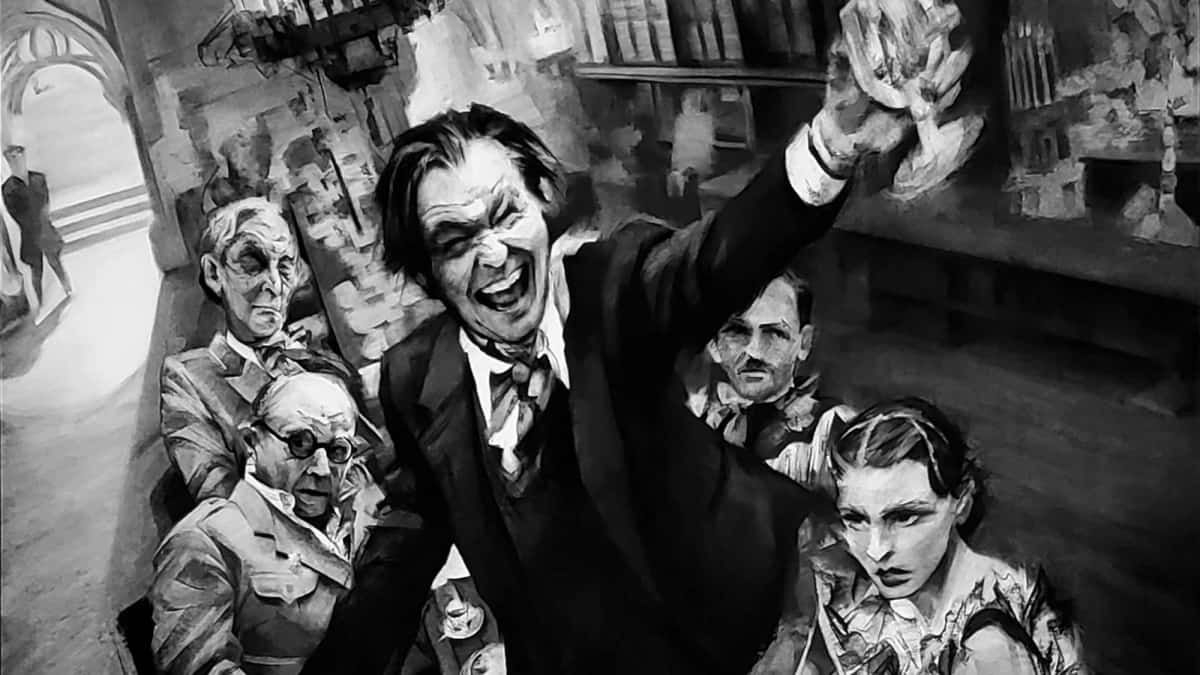Movie Review: Mank
8th December 2020
Copyright: Netflix
David Fincher makes a grand return to movie making, long-awaited for those of us reeling from Mindhunter’s sudden demise. Had the six-year wait not been worth it, I imagine Fincher’s legions of fans would be up in arms and on the streets. It would be hard to blame them. Mank is a reminder that Fincher is still hard at work, and hasn’t lost his touch after so long away from the world of the big screen. Not that you’ll be able to see Mank on the big screen, certainly not in the United Kingdom, anyway. No, us Brits will make do with what we have. Netflix. A bold ambition that has led to nothing but pain, strife and misery. Mank, then, is a rare occasion that avoids the practical pratfalls and overindulgence of most commissioned works of the Netflix machine.
Haunted echoes on the Hollywood lot, Mank captures the Golden Era of filmmaking which we’re all so fond of. A love of this movement and the talkies that followed is general consensus, but a blind eye to the grief, sorrow and backstabbing behind the scenes is, too, accepted. Self-preservation wasn’t just a goal for budding starlets and whisky-riddled writers to aim for, it was their way of survival. Enter Herman Mankiewicz. Assembling a grand cast of Amanda Seyfried, Lily Collins, Charles Dance and Gary Oldman as our titular, abbreviated and inebriated writer, Mank has all the makings of a truly successful adaptation. Oldman and Seyfried will carry with their remarkable work, Oldman will surely go on to bask in awards success. Keep your eye out for Arliss Howard’s performance as Louis B. Mayer, though, he turns in a supporting performance so crucial and steeped in emotion.
It’ll inevitably be mired by controversy. Already, heads are beginning to turn when regarding the relationship between Orson Welles and Mankiewicz. My expertise of Welles and his relationship with Mankiewicz is limited at best, but the inclusion of one final bust-up between Hollywood’s “Golden Boy” and the devoted writer behind him is a rare moment that should be alluded to, but never shown. It detracts from the mystery this film possesses, but Fincher is cautious so as not to make broad, sweeping statements that can be disproven in later years. His direction is clear and effective, a fond use of old tricks from not just his own repertoire, but the standards of the 1930s and 40s era of filmmaking. It makes for a surprisingly strong mixture, concocting an admirable scent of appreciation and respect for the world he picks apart.
My fear of a blasé response to Mank was not entirely unfounded, but the finished product is truly something to bask in. Most biopics that reminisce of ages where its subjects are long gone struggle to separate themselves from the contemporary, so to see Fincher dive headfirst not just into this story, but the period it’s set in, is a remarkable turning point. Not just a collection of memories praising Citizen Kane, but a layered story filled with political ruses, doomed friendships and the harrowing reality of finite stardom. Thoroughly entertaining, but as the man himself would put it, two hours only leaves the impression of the great H. Mankiewicz.
![]()


